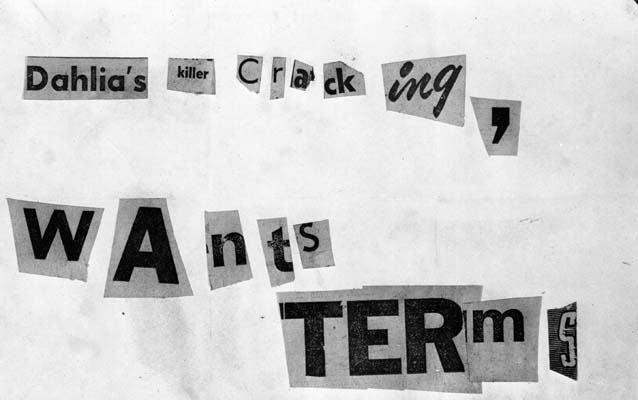Seventy years a Dahlia

author: alexa lawlor | staff writer

Credit: Gerard Van der Leun via flickr
“It astounds me that even when a young woman is brutally murdered, there is still a ridiculous amount of victim blaming.”
Our society has an interesting fascination with murder. Mortality and what happens after death are incredibly controversial topics, but it seems to intrigue us even more when someone takes the life of another person. However, even though the act of murder is disturbing, we tend to be more interested in the “whodunit.” There are many TV shows, movies and novels that can fuel this addiction to knowing the identity of the culprit. I could probably name over ten crime shows just off the top of my head, mainly fiction, but there are also quite a few that are non-fiction, as well.
I will admit to the fact that I adore crime shows. I enjoy trying to pay close attention to the clues and attempting to figure out who committed the crime. Yet, when it comes to the idea of murder in the real world, it is infinitely more disturbing. When you’re watching a news story instead of a TV show, it becomes a nightmare instead of a hobby, where the person murdered may be just like you or someone you know. Our knowledge of murder on the TV screen leads us to believe one thing: that it’s simply not real, right? The ideas you see were imagined by a writer, and surely no one could be capable of horrible murders like we see on screen; however, when you see what people in reality are capable of, it can be absolutely terrifying.
Unfortunately, when the news story is about an especially gruesome murder, the world will often memorialize the case, especially when it has yet to be solved. The case of the Black Dahlia murder is one of the most famous murder cases in Los Angeles. Jan. 15, 2017 marks the 70th anniversary of the brutal murder of a young woman named Elizabeth Short, also known as the “Black Dahlia.”
So, exactly who was the “Black Dahlia?” Elizabeth Short was a beautiful, young woman, twenty-two years old, and an aspiring actress. She was born on July 29, 1924 in Boston, Massachusetts, but was living in California before her death, trying to make it onto the big screen. When she was found, she was left posed, and cut in half at the waist. Now, rather than her case being treated with respect, her tragic end was the cause of much celebrity. The nickname of the “Black Dahlia,” originally established by reporters writing about the case, comes from the combination of Elizabeth Short’s raven-black hair and the 1946 film noir called the Blue Dahlia.
After the murder, rumours spread that Elizabeth Short was wearing tight clothes on the day she was last seen, thus being labelled a prostitute. Many other awful names and rumours were attributed to Short, where names like “cock tease” were tossed around like they were nothing, although they severely tarnished her reputation. Accusations like these became a typical occurrence, because Elizabeth Short was described as a party girl who would go out with many different men, but would sleep with very few of them. The rumoured “reason” she did not sleep with every single man she went out with was because she had a vaginal defect that did not allow her to have sex, although that was proven to be false.
It astounds me that even when a young woman is brutally murdered, there is still a ridiculous amount of victim blaming. It does not matter what clothes she was wearing, or what her lifestyle might have been. No one deserves to be murdered. Sadly, this is still incredibly relevant, especially when it comes to violence against women. Victim blaming is an epidemic, especially in a murder case, because then, the victim can no longer defend herself or her actions.
Over the years, the Black Dahlia case has been passed down throughout the Los Angeles Police Department, but many other people have attempted to solve the crime. There have been numerous novels written about who could have been the killer, including a novel written by Steve Hodel, where he accuses his own father of the Black Dahlia murder. None of these claims have been proven true due to lack of evidence, as well as the fact that most of the suspects are dead, and therefore cannot be questioned. After seventy years, it appears that this case may never be solved.








